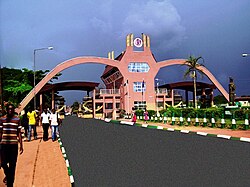In an era where employability depends as much on practical skill as on academic brilliance, the University of Benin (UNIBEN) is charting a bold new course. Determined to redefine what it means to be “university-trained,” the institution has unveiled a Vocational and Technical Training Programme (VTTP) designed to merge classroom learning with real-world expertise.
At the heart of this transformation lies its flagship project — the “Fundamentals of Automobile Service and Periodic Maintenance Training Programme.” Far more than a course, it’s a visionary step toward transforming UNIBEN into a national hub for technical innovation, employability, and entrepreneurial empowerment.
From Theory to Torque: Turning Knowledge into Skill
Speaking at the official unveiling, Vice-Chancellor, Prof. Edoba Omoregie, described the new programme as a cornerstone of his administration’s Five-Point Agenda — a reform blueprint that places skill acquisition and student empowerment at its core.
“The future of higher education in Nigeria lies in integrating technical competence with academic learning,” Prof. Omoregie stated. “We are building a university system that produces innovators and job creators, not job seekers.”
Under the initiative, engineering undergraduates will move beyond the lecture hall to experience hands-on automobile diagnostics, servicing, and periodic maintenance. Led by seasoned industry professionals and technical experts, the training will help students translate theoretical knowledge into tangible, in-demand capabilities.
Driving a New Vision of Learning
For decades, Nigerian universities have been criticised for producing graduates who excel academically but lack workplace readiness. UNIBEN’s response is both timely and visionary.
By infusing vocational and technical education into its academic framework, the university aims to bridge the gap between knowledge and application, equipping students with the practical edge that modern employers demand.
The programme also reinforces UNIBEN’s ambition to become a centre of excellence in capacity building — one that nurtures technical confidence alongside intellectual competence.
Leadership That Dares to Innovate
The transformation unfolding at UNIBEN is not accidental. It stems from deliberate, reform-driven leadership.
Prof. Andrew Amenaghawon, Coordinator of the VTTP, lauded the Vice-Chancellor’s foresight, describing the initiative as a “bold and transformative stride.”
“This isn’t just about learning how to fix cars,” he said passionately. “It’s about giving students the confidence and capability to solve problems, build businesses, and create value in a fast-changing economy.”
According to him, the programme will eventually expand beyond automobile training to cover other technical disciplines, building a broad ecosystem of skilled graduates who can power Nigeria’s industrial future.
The Bigger Picture: Reimagining Nigerian Education
UNIBEN’s initiative aligns with a growing global shift toward experiential learning — a model that values what students can do as much as what they know. The approach reflects a deep understanding that technical proficiency is the bridge between education and employability.
By investing in practical training infrastructure and industry partnerships, UNIBEN is effectively positioning itself as a pioneer of the next generation of Nigerian universities — ones that are not merely centres of knowledge, but incubators of innovation and enterprise.
Empowering the Future, One Skill at a Time
As the pilot phase gets underway, excitement is building across the university community. For students, it’s an opportunity to gain real-world competence before graduation; for faculty, it’s a chance to teach beyond the blackboard.
And for Nigeria’s higher education system, UNIBEN’s initiative stands as a powerful reminder that universities can — and must — evolve with the times.
Through initiatives like this, the University of Benin isn’t just teaching the mechanics of automobiles; it’s fine-tuning the engines of the nation’s future.

